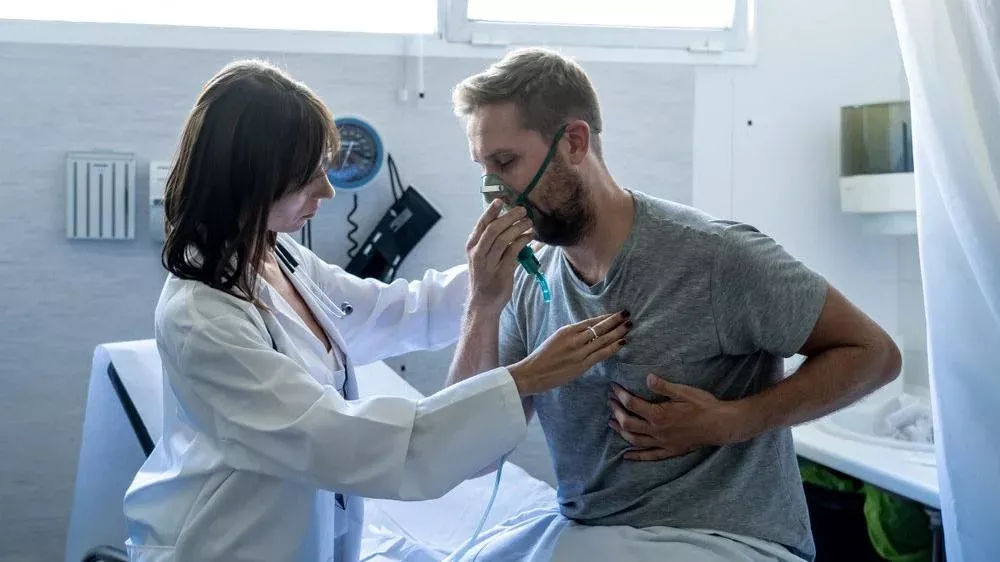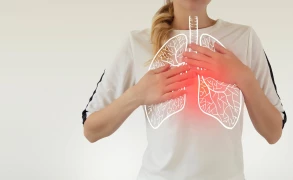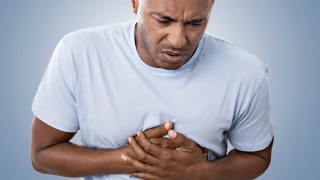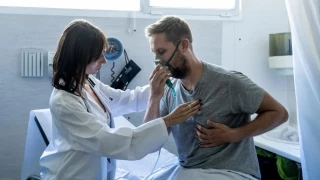
What is Pneumonia? How Is It Treated?
- What is Pneumonia? How Is It Treated?
- How Does Pneumonia Transmission Happen?
- How Should Pneumonia Prevention Ways Be?
- What are the points to be considered in order not to have pneumonia?
- What are the Causes of Pneumonia?
- How Is Pneumonia Diagnosed?
- What are the Pneumonia Treatment Methods?
Pneumonia, as it is called in medicine, is the covering of the air sacs in the lungs with an inflamed fluid by catching a germ. Bacteria and viruses cause pneumonia. This disease is highly contagious and is easily passed from person to person. Pneumonia is a lung disease with lethal features and is more common in children. It is generally seen in children between the ages of zero and four in Turkey, and deaths occur at this age. The pneumonia microbe, which occurs in adults as well as children, recovers after the necessary treatment and the patient regains his health.
The high mortality rate of this disease in children is due to their weak immune system. Likewise, pneumonia in the elderly causes frequent deaths. The fact that children aged two and younger have the same problem as the immune system, as well as elderly people, causes pneumonia to result in death. Pneumonia is more common in people who have had heart and lung disease before.
Because people who have had this disease have a weak immune system, and the pneumonia microbe that enters their body causes the person's disease to progress. As a result of the research, two or three out of a hundred people get pneumonia every year and get this disease. The person, on the other hand, realizes that he has pneumonia late with the progression of the disease, and the treatment time is longer for his recovery.
The presence of microbes in the lungs, such as the symptoms of coronavirus disease, causes some patients not to realize that they have pneumonia. As a result of this mixing, people with pneumonia go to the specialist doctor when the disease progresses. It is extremely important for people with COPD, heart failure and chronic diabetes who do not want to have pneumonia, to have pneumonia vaccine.
How Does Pneumonia Transmission Happen?
Influenza infection and similar respiratory diseases cause the formation of pneumonia. Pneumonia infection can be due to different reasons.
These reasons include:
- When a person with pneumonia sneezes, the disease can be transmitted to another person. If the pneumonia germ spread by the person who sneezes, remains in that place for a long time if the environment is not ventilated and causes another person to become ill by breathing that microbe.
- Coughing violently by the sneezing person also causes the transmission of this disease to someone else.
- Apart from these two reasons, pneumonia can also be transmitted due to not washing the common cutlery and knives properly. Therefore, kitchen utensils such as forks, glasses and spoons used by the person with pneumonia at home should be separate. In this way, the contamination situation will be eliminated.
Apart from these, transmission of the disease occurs when the microbe spread by the person with pneumonia spreads to the hands of another person and that person rubs his/her face. It is extremely important that people with pneumonia, especially those who are very old, and babies do not approach them. If they come close, the risk of transmission of the disease to them will be high.
How Should Pneumonia Prevention Ways Be?
Pneumonia is a contagious lung disease with lethal effect. Therefore, in order to be protected from pneumonia, it is necessary to pay attention to the life of the person and to pay particular attention to cleanliness. The first treatment method among pneumonia prevention methods is vaccination. Getting this vaccine for people who have not had pneumonia before will both protect them from the disease and protect the person against germs that cause other possible lung diseases.
The Turkish Ministry of Health, on the other hand, mandated the pneumonia vaccine to be given to children who are in their developmental age. In this way, when they grow up, their immunity will be strengthened due to the pneumonia vaccine and they will be protected from this contagious disease. The Ministry of Health has determined the dates of the vaccine that should be given to children in certain months.
The pneumonia vaccine to be given to children at the end of the second, fourth, sixth and twelfth months will protect them from this deadly disease in the future. The most ideal vaccination calendar is these dates. Vaccination of elderly people who are at risk, such as children, will protect them from the disease.
What are the points to be considered in order not to have pneumonia?
The points to be considered in order not to have pneumonia are extremely important for a healthy life. In particular, cleanliness is in the first place in this regard. If you have touched your mouth and nose with your hands, you should wash your hands thoroughly before eating. It would be best to wash your hands by not reusing the napkin you used while coughing or sneezing.
It is extremely important that you use disposable napkins. Do not share the cutlery, plate, glass and other kitchen utensils you have used with others and do not let anyone else share them with you. It is among the issues that you should pay attention to consume the foods necessary for the person's immunity to decrease and to be stronger, and to quit bad habits that cause weakening of the immune system, such as smoking and alcohol.
What are the Causes of Pneumonia?
Pneumonia, which has a dangerous and lethal effect like the coronavirus, causes people who do not take the necessary precautions to die more often.
Causes of pneumonia include:
- The pneumococcal microbe caused by this disease causes bacteria to build up in a person's lungs. This causes pneumonia to occur.
- Half of the pneumonia diseases seen in the community occur due to this reason.
- Another microbe that causes pneumonia is the mycoplasma pneumonia bacterium.
- In addition to microbes such as coronavirus, SARS, influenza, rhinovirus, catching the flu due to the common cold causes your disease to turn into pneumonia in the future.
- Even if it is rare, the occurrence of pneumonia microbe in a person due to fungus is especially seen in people with weak immunity.
In addition, chronic diseases such as bronchitis in both children and adults cause the person's disease to turn into pneumonia as a result of microbes entering the lungs.
What Are the Symptoms of Pneumonia?
Whether a person has pneumonia becomes clear when certain symptoms appear. Pneumonia is more common in winter. Symptoms of pneumonia are very similar to when a person has an upper respiratory illness. There are differences, but in general, the person suffers from the same complaints.
The most common symptom among the symptoms of pneumonia is high fever that does not go away. At the same time, a severe and pulmonary cough is a common symptom among the symptoms of pneumonia. A person with pneumonia initially presents with sneezing and then a runny nose and cough.
The disease most often confused with the coronavirus is pneumonia. If the treatment process is delayed, it will cause the death of the person in a short time like the coronavirus. There are important signs of separating this disease from the flu infection. The first of these is the presence of a high fever and the constant pain in the chest of the person.
Symptoms of pneumonia include:
- Occurrence of unconsciousness in the elderly.
- Continuing high fever.
- Chest pain accompanied by severe coughing.
- Weakness of the body and headache.
- Having trouble breathing.
- Rapid breathing.
- Abdominal swelling and pain.
- The formation of sputum and the expulsion of yellowish and green fluid from the person.
- Chills and chills in the person.
- Although rare, the person has vomiting.
These are the most common symptoms of the disease. Other than these symptoms, there are no obvious causes.
How Is Pneumonia Diagnosed?
Pneumonia, a contagious and fatal lung disease, is a disease diagnosed by the person showing certain symptoms and performing the necessary tests by a specialist physician. The doctor, who will diagnose pneumonia, performs tests such as chest X-ray and tomography. At the same time, by examining himself physically, he decides to finalize the diagnosis.
A specialist chest diseases doctor can easily diagnose whether this disease is present with a chest X-ray. If the specialist doctor does not make a diagnosis of pneumonia on the person's complaints, he or she will do some additional tests. These include blood testing, sputum culture, and computed tomography. At the end of the examinations, the doctor diagnoses the disease and applies the treatment method to the patient.
What are the Pneumonia Treatment Methods?
Pneumonia treatment methods are shaped according to the condition of the person's disease and are applied to the patient by the specialist doctor. Before starting the treatment of the person with pneumonia, the specialist doctor considers some of the factors of this person and starts the treatment. The type of virus, age and clinical condition of the person also cause the doctor to determine the treatment methods.
If the patient has a severe pneumonia, the doctor decides that this treatment should be inpatient, in the hospital, and the patient is hospitalized. People with pneumonia who suffer from respiratory failure and have difficulty breathing should be treated in the hospital. If pneumonia is caused by a virus, not a bacterium, the doctor will not treat the person with antibiotics. In the face of this situation, it is extremely important to rest and drink plenty of fluids.
If your disease causes pain in certain parts of your body, your doctor will recommend you to use pain medication and prescribe the drug you need to use with a prescription. If pneumonia is caused by bacteria, the doctor administers antibiotic treatment to the patient. People with pneumonia should continue their lives more carefully after recovery.
The progression of the disease continues for a month with side effects such as weakness in the person. In such cases, it is important for the person to rest. It is extremely dangerous for a person to use antibiotics and similar drugs according to one's own mind, and no one should try to treat himself without a doctor.





